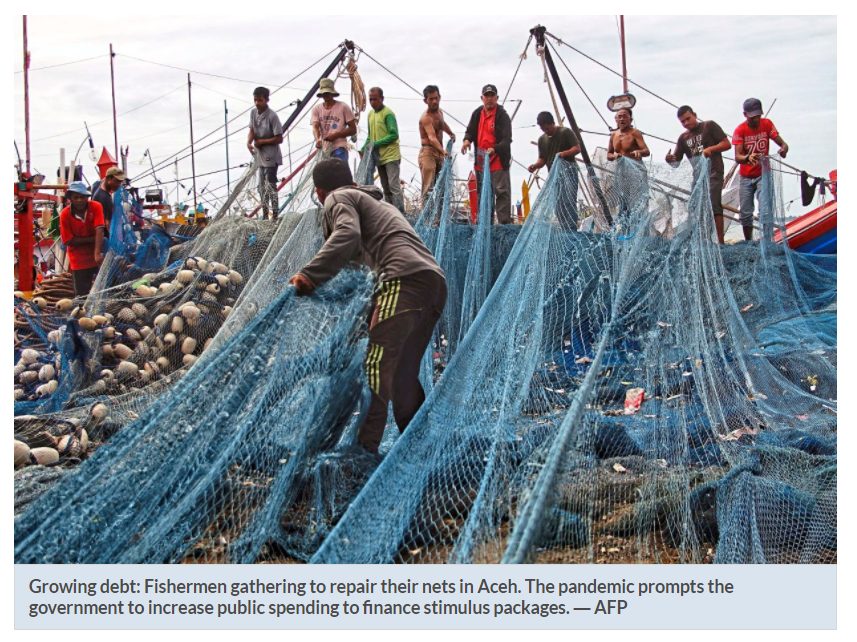Concern about Indonesia’s ability to service debt as economy falters
JAKARTA: The Supreme Audit Agency (BPK) has warned the government over a potential decline in its ability to service its increasing debt, after it hiked state spending in 2020 to finance economic stimulus measures as part of the national pandemic response.
BPK chairman Agung Firman Sampurna said that interest payments on national debt relative to government revenue stood at 19.06% last year, much higher than the 7% to 10% recommended by the International Monetary Fund (IMF).
Meanwhile, government debt-to-revenue ratio was 369%, also far exceeding the IMF-recommended threshold of 90% to 150%.
“The uptrend in government debt and interest cost exceeds growth in gross domestic product (GDP) and state revenue, which is cause for concern over the declining ability of the government to make debt and interest payments, ” Agung told a House of Representatives plenary meeting.
The Covid-19 pandemic prompted the government to increase public spending to finance a stimulus package that accounted for 3.8% of GDP, and at a time when revenue was declining as the economy plunged into its first recession in more than two decades.
As a result, fiscal deficit grew to 6.09% of GDP last year from around 2% in 2019. The government has estimated this year’s deficit at 5.7% of GDP, but it expects fiscal consolidation to bring the figure down below the previous 3% deficit cap by 2023.
Government debt in April reached 41.18% of GDP, up from 30% before the pandemic. The World Bank has forecast a continuing rise in Indonesia’s debt-to-GDP ratio to 43.5% until 2024, and possibly further after then.
Indonesia’s current ratio is lower than that of its emerging market peers and even developed countries, with some exceeding 100%.
The 10-year government bond yields in rupiah and United States dollar denominations stood respectively at 6.51% and 2.10% on June 18, according to Finance Ministry data.
The figures are lower than the sovereign yields of several other emerging markets, such as Brazil. Bank Permata chief economist Josua Pardede said this year’s budget plan showed that the government’s fiscal consolidation strategy was to reduce the deficit, so there was a low likelihood that debt would rise further. “The budget is countercyclical in nature, aimed at preventing the economy from falling any deeper, ” Josua told The Jakarta Post. ― The Jakarta Post/ANN


 English
English




